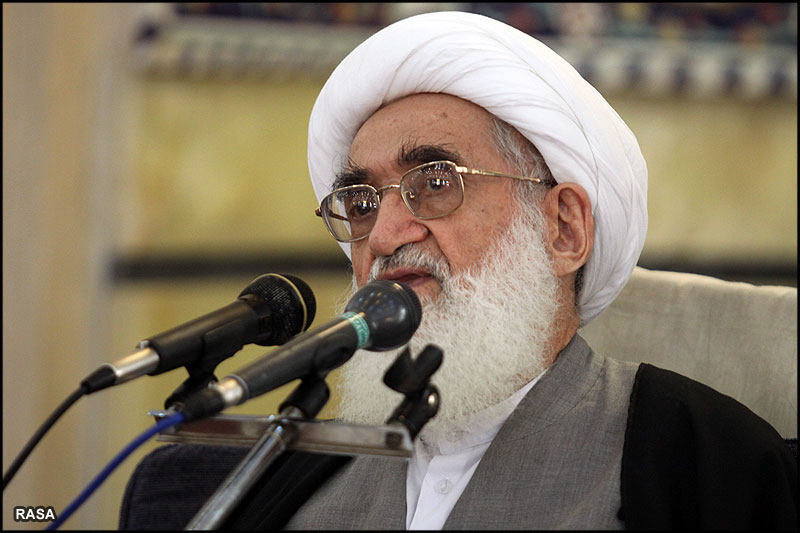
RNA – Ayatollah Hoseyn Nouri-Hamadani, a renowned source of emulation, has stressed that the Islam of Takfiri groups, such as the Taliban in Pakistan and Afghanistan and ISIL in Iraq and Syria, is a completely wrong understanding of Islamic religious teachings. He added that these Takfiri groups have perverted Islam from a religion of compassion and mercy into a cult of terror and hatred. “Understanding the religious teachings of Islam means to look at all dimensions associated with it,” he explained.
His Eminence stressed that the revival of the Islamic religion is one the fruits of the Islamic Revolution in Iran, adding that due to the efforts of Imam Khomeini, the glorious Islamic Revolution was able to “revive the authentic teachings of Islam from the foreigners who attempted marginalize and eliminate it.”
Ayatollah Nouri-Hamadani pointed out that the late Imam was very concerned with the necessity of exporting the Islamic Revolution. The Imam said that “our revolution was established on the basis of Islamic values and we must work to spread the religion of Islam and the values that came out of this revolution to all parts of the world.”
He explained that with the establishment of Wilayat al-Faqih (Guardianship of the Jurisprudence) as the foundation of the Islamic Revolution, the true face of arrogance in the world was revealed. He explained that this is because Wilayat al-Faqih promotes a culture of selfishness and martyrdom.
Ayatollah Nouri-Hamadani added that the establishment of Friday prayers was one of the most important achievements of the late Imam. It is counted as one of the many blessings created by the Islamic revolution because it injected the spirit of self-confidence into the Muslim society and into the [oppressed] peoples of the world after they lost self-confidence due to the oppression they suffered.
His Eminence encouraged the Iranian people to learn from the courage of the late Imam, as this courage is what prompted Iran to make significant progress in many areas, including nuclear energy and medical science, as well as the establishment of a culture of positivism, where people say “yes, we can!”
111/112